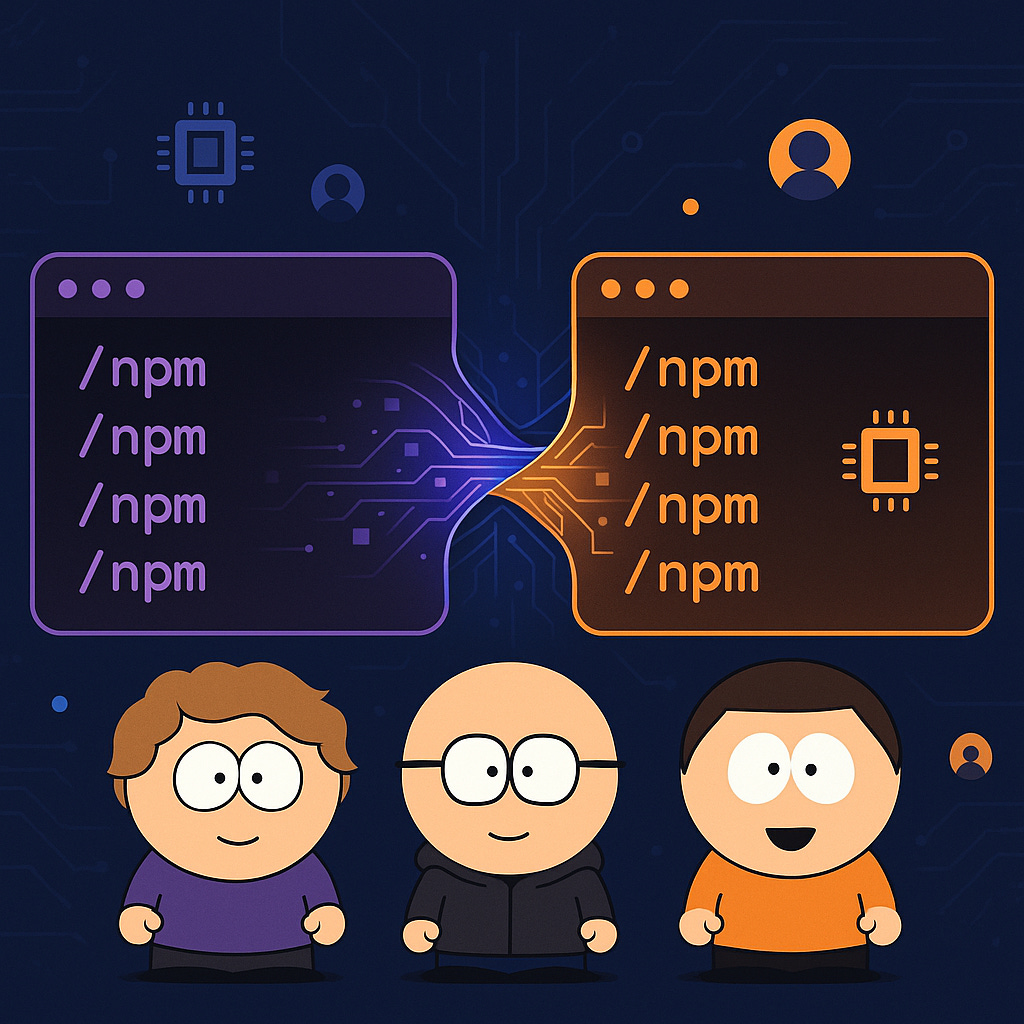Why Augment Code’s Integration Strategy Is Smarter Than You Think
A short article - hurrah!
I run four AI coding tools simultaneously. Sounds excessive until you see the strategy in action. Augment Code’s Augie CLI and Claude Code aren’t rivals in my workflow – they’re complementary partners. Augment did something subtle but brilliant: they made interoperability a first-class feature.
The Integration Play
Augment Code adopted two key things that make “platooning” multiple AI agents seamless:
Claude Code’s
/commandsmodel. Augment’s terminal tool (Auggie) implements the same slash‑command interface as Claude Code. In fact, Auggie automatically detects and supports commands defined in Claude’s./.claude/commands/directory for full compatibility. Every workflow I built in Claude –/mpm,/mpm-agents,/mpm-doctor– runs identically in Auggie.Model Context Protocol (MCP). Augment supports MCP natively, meaning external context engines, memory systems, and tools can be shared between Claude and Augment with zero changes. MCP is the open protocol unifying AI assistants with external data and tools.
Because Augment adopted Claude’s command schema and MCP, switching between the two costs you nothing—your workflows just carry over.
Why This Matters
I built months of custom workflows in Claude Code. When I switch to Auggie, those workflows just work. No translation, no re-learning. Augment’s context engine is particularly strong—it indexes codebases like a search engine, rather than pushing raw tokens. Users have observed that Augment can process and retrieve context from hundreds of thousands of files more efficiently than Claude’s prompt window.
[REMOVED MOLISHA SHAH QUOTE - couldn’t verify]
Augment supports the Model Context Protocol (MCP) standard, and third-party developers have created MCP servers like auggie-context-mcp that enable Claude and other tools to access Augment’s context engine, creating practical interoperability across the ecosystem.
When to Use What
Use Case Tool Why Complex refactoring, cross-cutting architectural changes Claude Code + Claude‑MPM Multi-agent orchestration, long-horizon reasoning, full codebase coordination. Quick bug fixes, debugging, documentation, operations Augment’s Auggie CLI Single-agent focus, near-instant responses, efficient token usage.
Power users often platoon them—do architectural planning in Claude, rapid iteration and patching in Auggie.
The Conservative Token Play
Augment’s design avoids “context dumping.” Because it indexes projects and retrieves selectively, its prompts stay lean. Augment’s pricing page emphasizes efficiency: users pay for meaningful interactions, not wasted tokens.
In production use, Augment’s retrieval-first design shows approximately 3× faster response times compared to large-context tools—averaging 4.1 seconds per response versus 12-15 seconds for competitors using million-token context windows. This architecture allows rapid, iterative work without ballooning API costs.
What They’ll Probably Do Next
Augment already offers multi-agent support via Remote Agents in its IDE extensions. Their roadmap appears centered on orchestrating teams of agents through standard protocols rather than proprietary lock-in.
This aligns with the broader industry movement toward agent interoperability standards, much like Language Server Protocol did for IDEs. Augment’s track record with MCP support suggests they’ll continue embracing open standards.
The Broader Implication
The AI coding market is consolidating around shared standards:
Slash commands as a universal interface (Claude’s model, extended by Augment)
Model Context Protocol for tool/data interconnectivity
Agent orchestration protocols for multi-tool collaboration
Tools embracing these standards gain instant workflow compatibility; those resisting create friction and force users into binary ecosystems. Augment’s strategy embraces openness, enabling seamless use alongside Claude.
Bottom Line
Augment Code’s integration strategy is a model of pragmatic interoperability: acknowledge where the ecosystem is heading, align with the standards, and differentiate through execution. For users like me, that means I can use Claude‑MPM for orchestration and Augment Auggie for focused execution—no vendor lock‑in, no translation overhead.
In a market obsessed with proprietary control, Augment’s commitment to playing well with others is the smartest move of all.
By Bob Matsuoka, writing about agentic coding and AI‑powered development at HyperDev.




The following section points to an article that doesn't exist https://www.augmentcode.com/blog/claude-code-vs-augment-code and I can't find anything about Augment open-sourcing their codebase indexer. Was this article AI-generated?
"Developers like Molisha Shah note that Augment’s full-repo indexing delivers more intelligent responses in less time. Instead of keeping that power walled off, Augment exposed it through open standards like MCP, so Claude and Augment users can share the same context integrations"